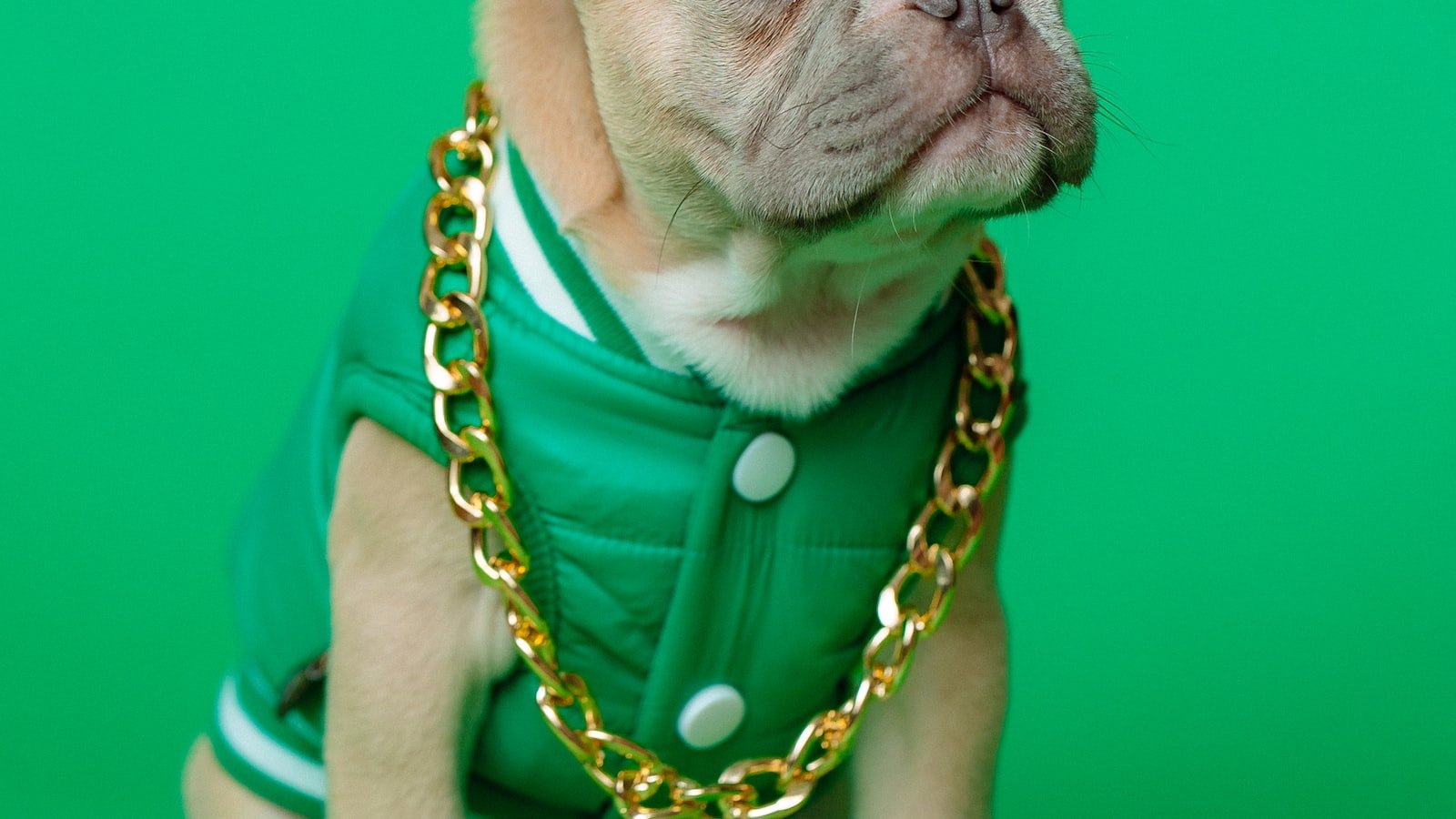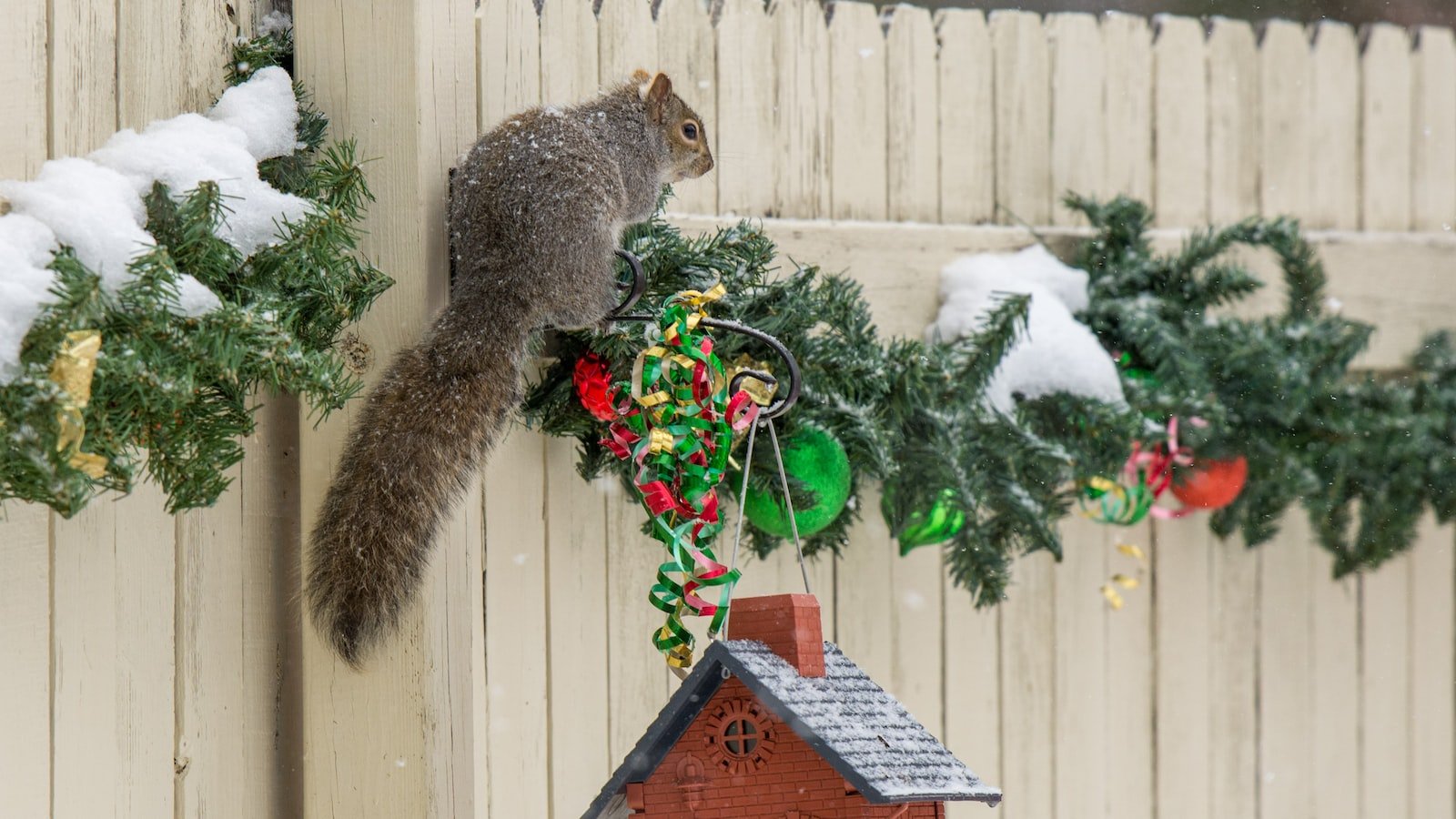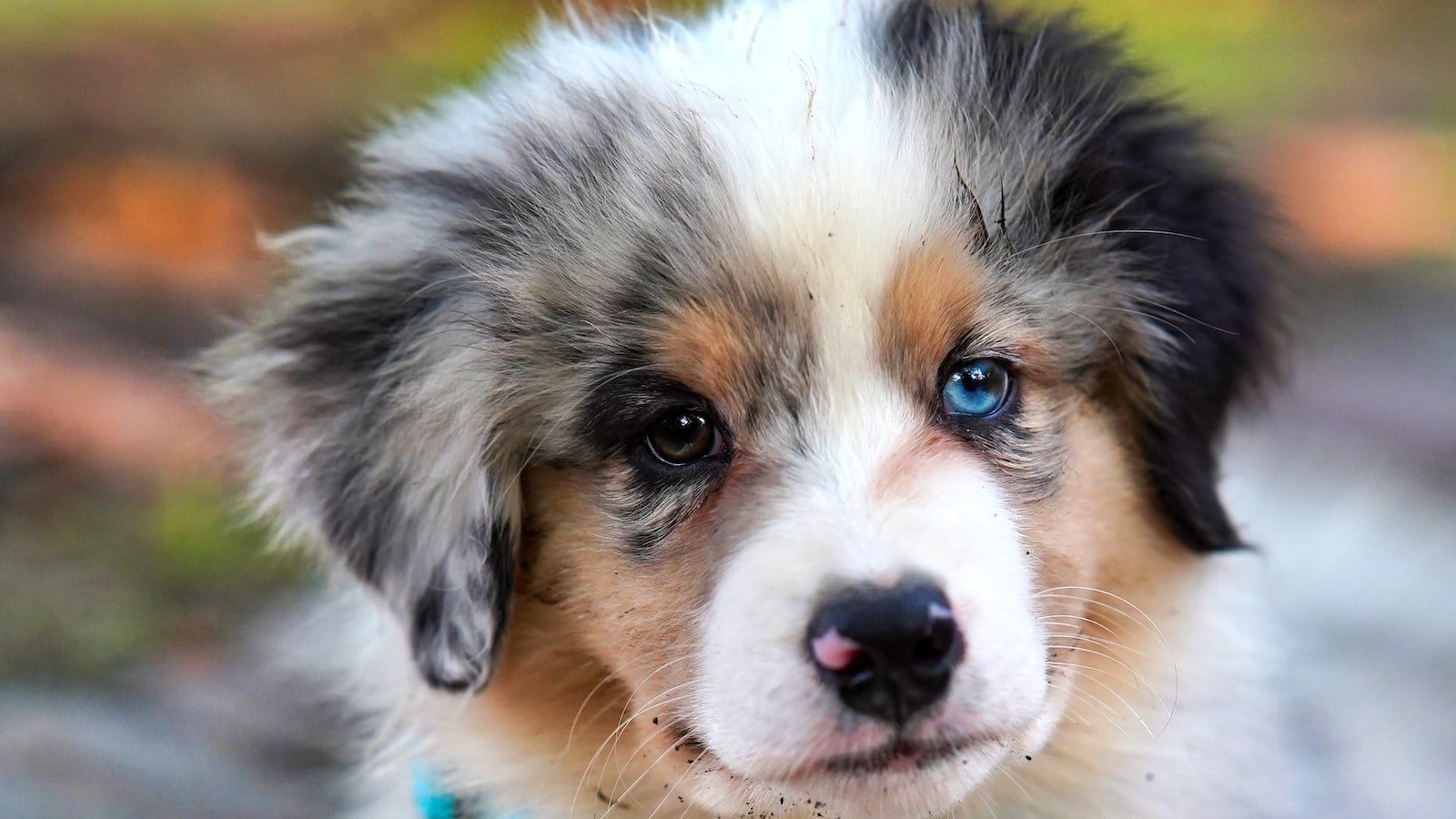Puppies, oh puppies! Their soft fur, waggling tails, and adorable little paws can melt even the coldest of hearts. But amid their undeniable charm lies a tiny, monstrous force known as the Chompazilla. Yes, you guessed it right – we’re talking about the dreaded puppy chewers. From shoes to furniture, electrical cords to priceless family heirlooms, these tiny furballs seem to have an insatiable appetite for destruction. If you find yourself pondering, “Why does my puppy chew everything?”, fret not, for this article will dive deep into the enigmatic world of puppy chewing, uncovering the secret motives behind this furry frenzy, and revealing some foolproof solutions to save your belongings from meeting a slobbery demise. Brace yourself for a journey into the chew-tastic realm of our four-legged little munchers!
Table of Contents
- Puppy Teething: Understanding the Natural Instinct
- Redirecting Chewing Behavior: Tips for Training
- Managing Boredom: Keeping Your Puppy Engaged
- Chew Toy Selection: Choosing the Right Options
- Supervision and Consistency: Keys to Preventing Excessive Chewing
- Q&A
- In Summary

Puppy Teething: Understanding the Natural Instinct
When it comes to puppy teething, it’s crucial to understand the natural instinct behind it. Puppies, just like human babies, go through a teething phase as their baby teeth start to fall out and make way for their adult teeth. This process usually begins around three to four months of age and can continue until they are six to eight months old.
During this teething stage, puppies experience discomfort and itchiness in their gums, which leads them to explore different objects to chew on. It’s important to provide appropriate chewing options to redirect their attention and satisfy their teething needs.
Here are some key points to keep in mind:
- Don’t panic: Puppy teething is a normal and necessary process. Understanding this instinct will help you approach it with patience and tolerance.
- Invest in teething toys: Provide your puppy with a variety of safe and specially designed teething toys. Look for toys made of durable materials and avoid ones that can easily be torn apart or pose a choking hazard.
- Keep an eye on their chewing habits: Puppies will try to chew on almost anything within their reach. Ensure that they are not damaging furniture, shoes, or any other valuable items. Redirect them to their designated chewing toys whenever you catch them chewing on something inappropriate.
- Provide relief for sore gums: Cold can help soothe your puppy’s sore gums. Consider freezing a wet cloth or providing frozen teething toys to alleviate their discomfort.
- Maintain dental hygiene: Even during the teething phase, it’s essential to care for your puppy’s oral health. Regularly brush their teeth with puppy-friendly toothpaste and schedule dental check-ups to ensure their dental development is progressing smoothly.

Redirecting Chewing Behavior: Tips for Training
- Introduce appropriate chew toys: Dogs have a natural instinct to chew, so it’s crucial to provide them with suitable alternatives. Invest in a variety of durable chew toys made from safe materials, such as rubber or nylon. These toys not only satisfy their chewing needs but also promote healthy teeth and gums.
- Supervise and redirect: Keep a close eye on your furry friend during their chewing sessions. If you catch them chewing on something they shouldn’t, gently say “no” and redirect their attention to an appropriate chew toy. Consistency and patience are key in reinforcing this behavior.
- Apply deterrents: For objects that are particularly tempting or hazardous, consider applying pet-safe bitter sprays or deterrents. The unpleasant taste will discourage your dog from chewing on such items and help solidify good chewing habits.
- Ensure physical and mental stimulation: Frequent exercise and mental stimulation greatly reduce destructive chewing behaviors. Engage your pup in interactive games, provide puzzle toys, and go for regular walks. A tired dog is a happy dog, less likely to resort to inappropriate chewing.
- Seek professional guidance: If your dog’s chewing behavior persists despite your efforts, it may be beneficial to consult a professional dog trainer or behaviorist. They can evaluate the situation, offer specialized advice, and create a customized training plan to redirect your dog’s chewing habits effectively.

Managing Boredom: Keeping Your Puppy Engaged
Boredom can be a real challenge when it comes to raising a puppy. Keeping your furry friend engaged is not only important for their mental stimulation and overall well-being, but it also helps prevent destructive behaviors caused by boredom. Here are some creative ideas to make sure your puppy stays entertained:
- Interactive toys: Invest in toys that challenge your puppy’s problem-solving skills. Puzzle toys with hidden treats inside or toys that require them to figure out how to get a reward will keep their minds engaged for hours.
- Engaging walks: Take your puppy on different routes during their daily walks to introduce them to new smells and sights. Walks are not only an opportunity to exercise, but also a chance for your puppy to explore their surroundings and experience new adventures.
- Training games: Teach your puppy new tricks and commands through fun training games. Use positive reinforcement, such as treats or praise, to keep them motivated. This not only provides mental stimulation but also strengthens the bond between you and your furry companion.
- Socialization opportunities: Arrange playdates with other friendly dogs or enroll your puppy in puppy socialization classes. This will help them develop social skills, learn appropriate behavior, and burn off excess energy in a controlled and supervised environment.
- Change up the environment: Create different play areas in your home or designate specific zones where your puppy can explore new toys or solve different challenges. Add items like tunnels, ramps, or even scatter treats around for them to discover during their playtime.
Remember, a bored puppy is more likely to engage in destructive behavior or become anxious. By actively managing their boredom and providing engaging activities, you can help ensure a happy and well-adjusted puppy.
Chew Toy Selection: Choosing the Right Options
When it comes to choosing the perfect chew toy for your furry friend, the options can seem overwhelming. However, with a little guidance, you can ensure that you’re selecting the right chew toy that will provide both entertainment and dental benefits for your pet.
Consider the size: Different chew toys are designed for different sizes of dogs. It’s important to choose a chew toy that is appropriate for your pet’s size to prevent any choking hazards. For small dogs, opt for toys that are small enough for them to comfortably hold in their mouths. Larger dogs, on the other hand, require sturdier toys that can withstand their powerful jaws.
Material matters: Chew toys come in various materials, each offering its own advantages. If your pup is an aggressive chewer, look for toys made from durable materials such as rubber or nylon. These toys are built to withstand the toughest chewers and can help redirect their chewing instincts away from destructive behaviors.
Texture and taste: Dogs are attracted to different textures and flavors, so consider your pet’s preferences. For teething puppies, textured toys can help soothe their sore gums. Some dogs are more enticed by toys that have a natural meaty scent, while others prefer toys with a squeaky component for added stimulation.
By taking into account these factors, you can make an informed decision when choosing the right chew toy for your furry companion. Remember to always supervise your dog during playtime and replace damaged or broken toys as necessary. Happy chewing!
Supervision and Consistency: Keys to Preventing Excessive Chewing
When it comes to preventing excessive chewing in your furry friend, two key factors hold the utmost importance: supervision and consistency. By implementing these strategies, you can ensure a healthy and happy environment for both you and your pet.
Supervision:
- Keep a watchful eye on your pet, especially during their exploring phase or when they show signs of boredom. This will allow you to quickly redirect their attention towards appropriate chew toys or activities.
- Create designated areas and secure them with pet gates or baby gates. These areas can be equipped with a variety of engaging toys, giving your pet a safe space to release their chewing instincts.
- Consider crate training to keep your pet contained when you are unable to supervise them closely. Provide enticing chew toys inside the crate to redirect their focus and keep them occupied.
Consistency:
- Establish clear rules and boundaries from the start. Train your pet to differentiate between what is acceptable to chew on and what is off-limits. Be consistent in enforcing these boundaries to avoid confusion.
- Ensure everyone in the household is on the same page. Communicate and educate your family members or roommates about the importance of preventing excessive chewing. Consistency in enforcing rules will help your pet understand that chewing on inappropriate items is not allowed.
- Provide a wide variety of appropriate chew toys and regularly rotate them to keep your pet interested and engaged. This will reduce the likelihood of them seeking out household items to satisfy their chewing needs.
By implementing effective supervision and staying consistent with your training methods, you can significantly reduce excessive chewing behavior in your beloved pet. Remember, patience and understanding are key to creating a positive environment that promotes healthy chewing habits!
Q&A
Why does my puppy chew everything?
Puppies chew everything as a natural behavior. They are exploring their surroundings and teething, which provides relief to their sore gums. Additionally, chewing helps puppies relieve stress and boredom.
What can I do to redirect my puppy’s chewing?
Provide your puppy with appropriate chew toys to redirect their chewing behavior. Offer a variety of toys with different textures and flavors to keep them interested. Additionally, make sure to puppy-proof your home and keep valuable or dangerous items out of reach.
How can I teach my puppy not to chew on furniture?
To discourage chewing on furniture, you can try utilizing taste deterrent sprays or applying a bitter apple solution to the items you want to protect. Provide your puppy with a designated chewing area and reward them whenever they chew on their toys instead of furniture.
What should I do if my puppy chews on valuable items?
If your puppy chews on valuable items, it’s essential not to punish them. Instead, interrupt their chewing by redirecting them to an appropriate toy and praise them when they switch their attention. Consistency, patience, and proper supervision are key when dealing with this behavior.
How can I prevent my puppy from chewing while teething?
During teething, puppies may have an increased urge to chew. Provide them with frozen washcloths, rubber toys, or specially designed teething toys to help soothe their gums. Avoid giving them hard items, such as bones or antlers, to prevent dental injuries.
What if my puppy chews out of boredom?
If your puppy chews out of boredom, it’s important to provide them with mental and physical stimulation. Engage in daily play and exercise sessions, provide puzzle toys, and introduce obedience training to keep their minds occupied and discourage destructive chewing behaviors.
In Summary
As our insightful exploration draws to a close, we can’t help but marvel at the enchanting world of our furry companions. From the mischief-filled antics to the heartwarming moments, puppies have a remarkable way of tugging at our heartstrings. Today, we delved deep into the captivating enigma of why these adorable balls of fur seem to have an insatiable desire to sink their tiny teeth into just about anything.
We unveiled the secret desires that hide behind those innocent, gleaming eyes, as we journeyed through the labyrinth of a puppy’s mind. Uncovering the underlying reasons for their incessant chewing, we discovered a whirlwind of possibilities. From teething woes to insatiable curiosity, our little canines embark on an exploration of textures, flavors, and, regrettably, your favorite pair of shoes.
But fret not, for we have revealed the solutions that lie within your grasp. Armed with knowledge, wisdom, and a touch of patience, you can unmask the mystery of your chewing champion. We have unraveled the tapestry of techniques that will help you redirect your pup’s insatiable urge towards more desirable and appropriate targets.
So, dear reader, as we bid adieu, we hope that armed with this newfound enlightenment, you embark on a harmonious journey with your puppy. For within those chewed-up shoes and mangled possessions lies the key to forging an unbreakable bond. Together, you shall conquer the land of chewed furniture and find solace in the understanding that behind every chewed toy, there is a playful soul in search of joy.
May you discover the serenity in guiding your beloved pup on a path towards responsible chewing habits. For in these small victories lies the promise of a mature and well-behaved companion. Remember, patience and consistent training shall pave the way for your puppy’s blossoming into a spectacular, reliable friend who no longer views your precious belongings as mere chew toys.
So until we meet again, surrounded by wagging tails and slobbering snouts, let the journey of understanding and growth continue. For the bond between human and puppy is a tale that unfolds over time, stitched together by laughter, devotion, and the occasional gnawed item. Cherish these moments, my friend, and embark on this adventure with an open heart and a pocket full of patience.
As an affiliate, my content may feature links to products I personally use and recommend. By taking action, like subscribing or making a purchase, you’ll be supporting my work and fueling my taco cravings at the same time. Win-win, right?
Want to read more? Check out our Affiliate Disclosure page.